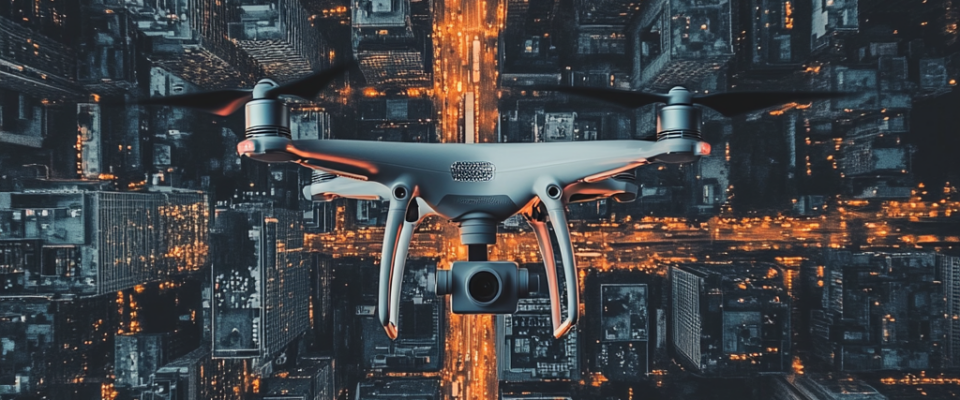In today’s fast-paced world, technological innovation is more than a buzzword—it’s the engine driving societal progress and economic growth. From groundbreaking advancements in artificial intelligence to the transformative power of quantum computing, the digital era is reshaping the way we live, work, and interact. Staying informed about these advancements isn’t just beneficial; it’s essential for anyone who wants to stay ahead in an increasingly competitive world.
The rapid pace of innovation has made yesterday’s science fiction a reality. Smart devices, autonomous machines, and ultrafast connectivity are no longer mere concepts; they are tools actively shaping industries and enhancing human potential. Understanding these technologies enables individuals and organizations to adapt, innovate, and thrive in an ever-evolving landscape.
Artificial Intelligence: Transforming Industries
Artificial intelligence is no longer just a tool for futuristic visions; it’s a cornerstone of modern industries. In healthcare, AI-driven diagnostics are enabling earlier detection of diseases like cancer, while personalized medicine tailors treatments to individual genetic profiles. With machine learning algorithms, hospitals can predict patient outcomes, reduce readmission rates, and streamline operations, improving overall efficiency.
In the financial sector, AI is redefining everything from fraud detection to investment strategies. Automated trading platforms analyze millions of data points in real time, making decisions with a precision unmatched by humans. Customer service in banks and other institutions is also being revolutionized by chatbots and virtual assistants, which provide 24/7 support, enhancing the customer experience while reducing operational costs.
Moreover, customer service across industries is evolving through AI-powered tools that analyze customer sentiment, predict needs, and offer tailored solutions. For businesses, this means not just efficiency but deeper connections with their audiences. AI is no longer an auxiliary feature; it’s a transformative force driving both operational success and user satisfaction.
Quantum Computing: The Next Frontier
Quantum computing represents a leap forward, offering computational power far beyond that of classical systems. While traditional computers process data in bits (0s and 1s), quantum computers use qubits, which can exist in multiple states simultaneously. This unique property, called superposition, allows quantum computers to solve complex problems exponentially faster.
In industries like pharmaceuticals, quantum computing is revolutionizing drug discovery by simulating molecular interactions at an unprecedented scale. Researchers can now predict how molecules will behave, accelerating the development of treatments for previously untreatable diseases. Similarly, in logistics and supply chains, quantum algorithms optimize routes and schedules, reducing costs and improving efficiency.
Despite its potential, quantum computing is still in its infancy, with challenges like error correction and stability limiting widespread adoption. However, its implications for encryption, artificial intelligence, and global problem-solving are undeniable. It’s not just the next frontier; it’s a foundation for innovations we’ve yet to imagine.
5G Networks: The Connectivity Revolution
The rollout of 5G networks is not just an upgrade in connectivity; it’s a revolution that will redefine digital communication. With speeds up to 100 times faster than 4G, 5G enables real-time data transfer, making applications like autonomous vehicles and augmented reality (AR) both practical and efficient.
One of the most significant impacts of 5G will be on the Internet of Things (IoT). With ultra-low latency, devices can communicate seamlessly, creating smarter cities, homes, and industries. For instance, smart sensors in agriculture can monitor soil health in real-time, while in manufacturing, 5G-connected machines enhance automation and reduce downtime.
Autonomous vehicles, a long-promised innovation, are closer to widespread adoption thanks to 5G. By enabling instant communication between vehicles and infrastructure, 5G ensures safer and more efficient transportation systems. The technology is also paving the way for remote surgeries and telemedicine, bringing advanced healthcare to underserved regions.
Blockchain: Securing the Future of Digital Transactions
Originally the backbone of cryptocurrencies like Bitcoin, blockchain technology has evolved into a versatile tool for ensuring transparency, security, and efficiency in digital transactions. Its decentralized nature makes it nearly immune to fraud, as every transaction is recorded on a public ledger and verified by multiple nodes.
Beyond finance, blockchain is transforming supply chain management. By providing a transparent, tamper-proof record of goods, businesses can trace products from origin to consumer, ensuring quality and ethical sourcing. In healthcare, blockchain secures patient data, enabling secure sharing between providers while maintaining confidentiality.
The technology also holds promise for digital identity management, allowing individuals to control their personal data without relying on centralized authorities. With applications ranging from voting systems to intellectual property rights, blockchain is poised to be a cornerstone of the digital future. Its ability to enhance trust and security makes it indispensable in an era of increasing cyber threats.
- Artificial Intelligence is revolutionizing industries like healthcare, finance, and customer service, making processes smarter and more efficient.
- Quantum Computing is unlocking unprecedented computational power, with applications in drug discovery, logistics, and encryption.
- 5G Networks are enabling faster, more reliable connectivity, driving innovations in IoT, autonomous vehicles, and remote healthcare.
- Blockchain Technology ensures transparency and security, transforming finance, supply chains, and digital identity management.
In addition to this article, we need to advise you to read our article, where we told you how to choose a laptop that meets your needs.
FAQ
Artificial intelligence, due to its widespread applications across multiple industries.
By enabling faster, more reliable connectivity, it will revolutionize communication, transportation, and smart technology integration.
Blockchain provides a secure, transparent way to manage transactions, data, and digital identities across various sectors.

